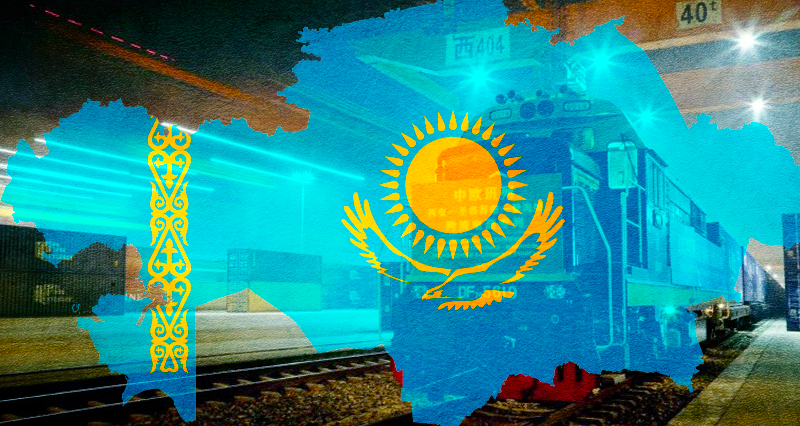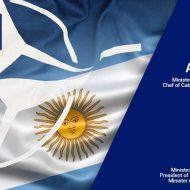By Massimiliano Ay
General Secretary of the Communist Party (Switzerland)
Lenin was not only the leader of the Bolshevik Revolution, he was an innovator in his application of Marxism. He understood that Marx and Engels lived in a different era from his own, and that his country had entered a different historical phase: the era of imperialism. A whole series of theoretical precepts formulated by the founders of Russian communism were adapted to the new situation. The revolution would not break out in the advanced countries of Europe where capitalist contradictions were stronger as Marx had predicted, they were to occur in the weakest links of the imperialist chain, places like Russia, China, and Cuba, etc. Lenin did not stick to a dogmatic program like many Marxists of the era– he treated Marxism as an evolving science in a changing world and, from concrete practice, created a new theory appropriate to his country and his time. This is the essence of scientific socialism.
Today we are called upon as communists to apply these lessons to our own ever changing world, to identify its contradictions and understand which of them are primary and which are secondary. This is the essence of the Marxist method. We can repeat beautiful ultra-revolutionary slogans of the extreme left ad-nauseum, but they are useless when out of phase. Class struggle today is based on the primary contradiction: Atlantic unipolarity (i.e. imperialism) in struggle with the Russian and Chinese-led Eurasian world, i.e. multipolarity. On this basis, all of the world’s other contradictions can be understood, and identified as secondary. This, however, does not make them illegitimate or even less important, but rather helps us understand that they are subordinate to a greater contradiction. Those who think otherwise might talk about communism, but they do little more than talk, and are unlikely to elicit any real change.
Those who read, for example, about the recent protests in Kazakhstan and saw it as a struggle exclusively developing from an increase in the price of energy, not taking into account the risk of a color counterrevolution (like the pro-Atlantic coup that occurred in 2014 in Ukraine) perhaps pay lip service to marx, but have clearly understood little of what Lenin contributed to revolutionary theory. They likely refuse to take into account the situation that has developed as a result of the emergence of Xi Jinping’s China to world power. A destabilized Kazakhstan not only risks encircling Russia (opening a new military front that will have heavy economic repercussions), but also potentially represents an act of sabotage against China’s New Silk Road strategy. Holding back China would slow down the process of national liberation of poor countries under the neo-colonial control of the US and EU, and thus serve to perpetuate Atlantic domination and capitalist exploitation.
There are obvious issues facing Marxists when it comes to Kazakhstan: thirty years ago, socialism was overthrown, and capitalism was imposed on the country. At this stage in history, a return to socialism is not on the table. Instead, the construction of a multipolar world is an absolute priority, guaranteeing nations their sovereignty, limiting risks of war of aggression, and allowing for the development of social struggles that are impossible now given the global balance of power.
As Comrade Dmitri Novikov, vice-president of the Communist Party of the Russian Federation (the main political force of the Union of Communist Parties of the former Soviet Union) says, Kazakhstan’s choice to adapt to the capitalist system “has caused an increase in social inequality, characteristic of the whole world, excluding China, Vietnam and other states”. He adds: “It is necessary to review the socio-economic policy in most of the CIS countries”. Quite right, but reviewing socio-economic policy does not mean beheading policemen, blocking air traffic with China and undermining the sovereignty of the Republic. In fact, Comrade Novikov continues to say that in the country “several foreign NGOs operate and influence the situation” because Kazakhstan “is of interest to Western intelligence services and governments as a country that can influence the fate of China and Russia. And Washington in its documents calls these two countries its two main opponents of the 21st century”.
The fact that there are numerous odious oligarchs in Kazakhstan is of course true. There are corrupt and privileged oligarchs everywhere, even in Switzerland, but this does not justify terrorism. In this moment, they represent a secondary contradiction: if Kazakhstan does not remain independent and connected to the New Silk Road, and instead moves closer to the Atlantic system as the insurgents hope, there will be no social improvement for the workers and popular classes of the country– indeed, things will be worse than they are today, where at least there is a regulatory State in which even communists can participate. Consider that quite recently, the (communist) People’s Party of Kazakhstan came close to 10% in the elections, increasing their number of elected deputies in the national parliament (consisting of 98 seats) to ten. It is absolutely clear to these comrades that a fairer system, following a socialist path, will not come about by destroying the State or burning national flags and throwing themselves into the hands of the EU, US and NATO.
Those who initially took to the streets against the high cost of living are not the same as those who today assault barracks and steal weapons in service of their masters in the West. In short, not understanding what is happening in Kazakhstan as a part of the new Cold War is likely to result in the development of a purely economic interpretation based in trade unionism (a punctual struggle for certain, but one limited to the first moments of the conflict, and, moreover, already resolved with the recent concessions of the Kazakh government), missing the real class conflict playing out on a higher level of contradiction.









Leave a Reply